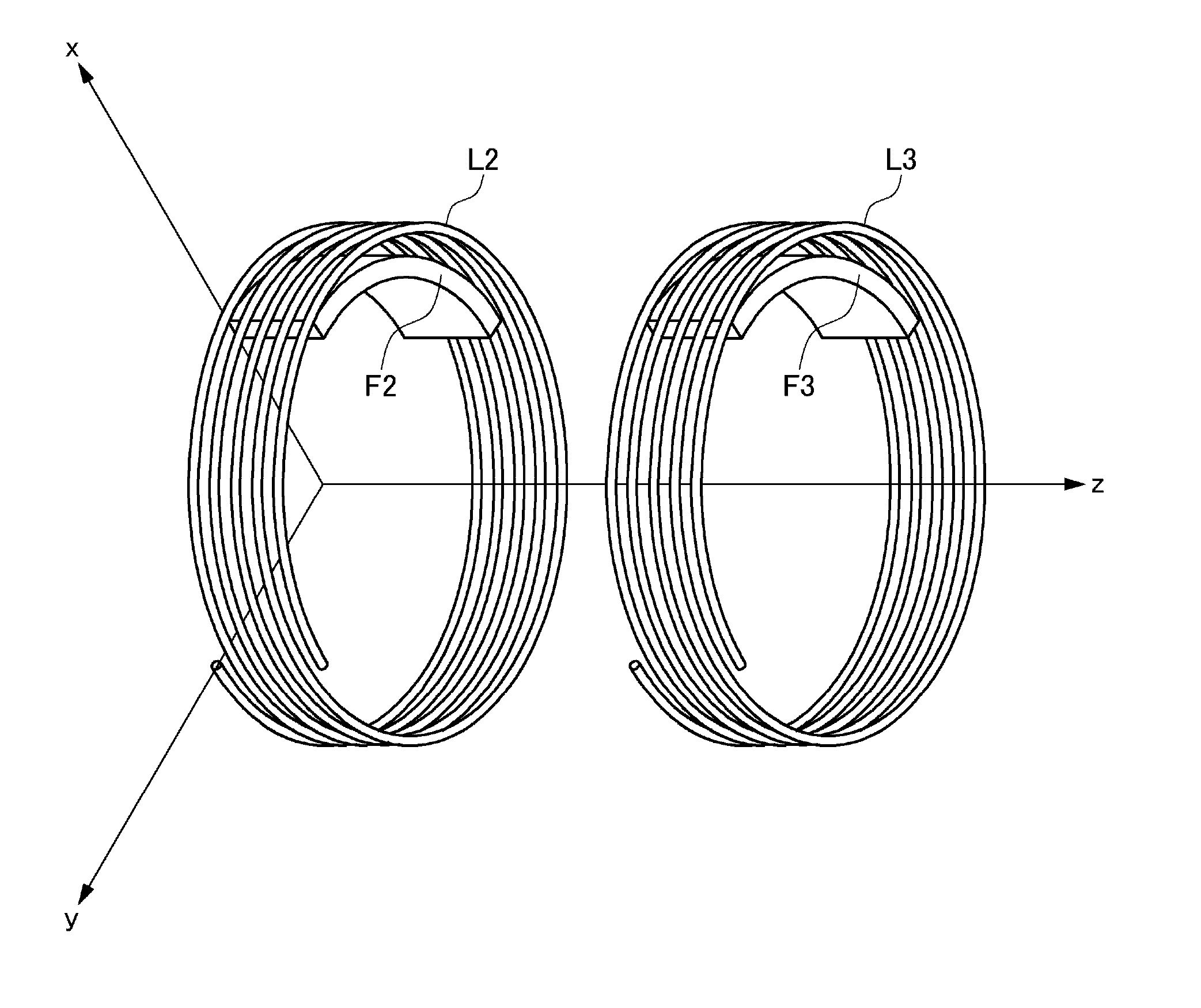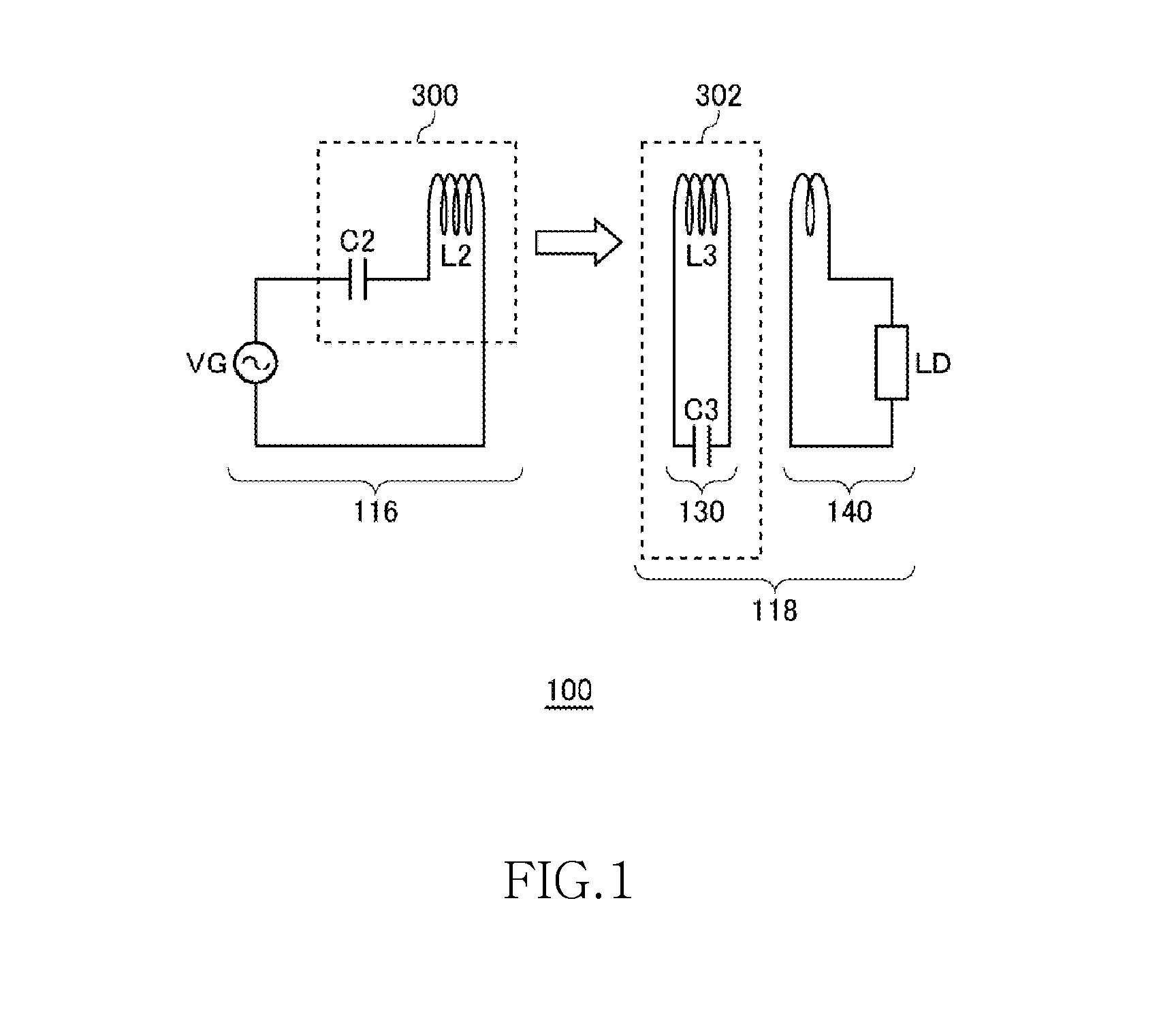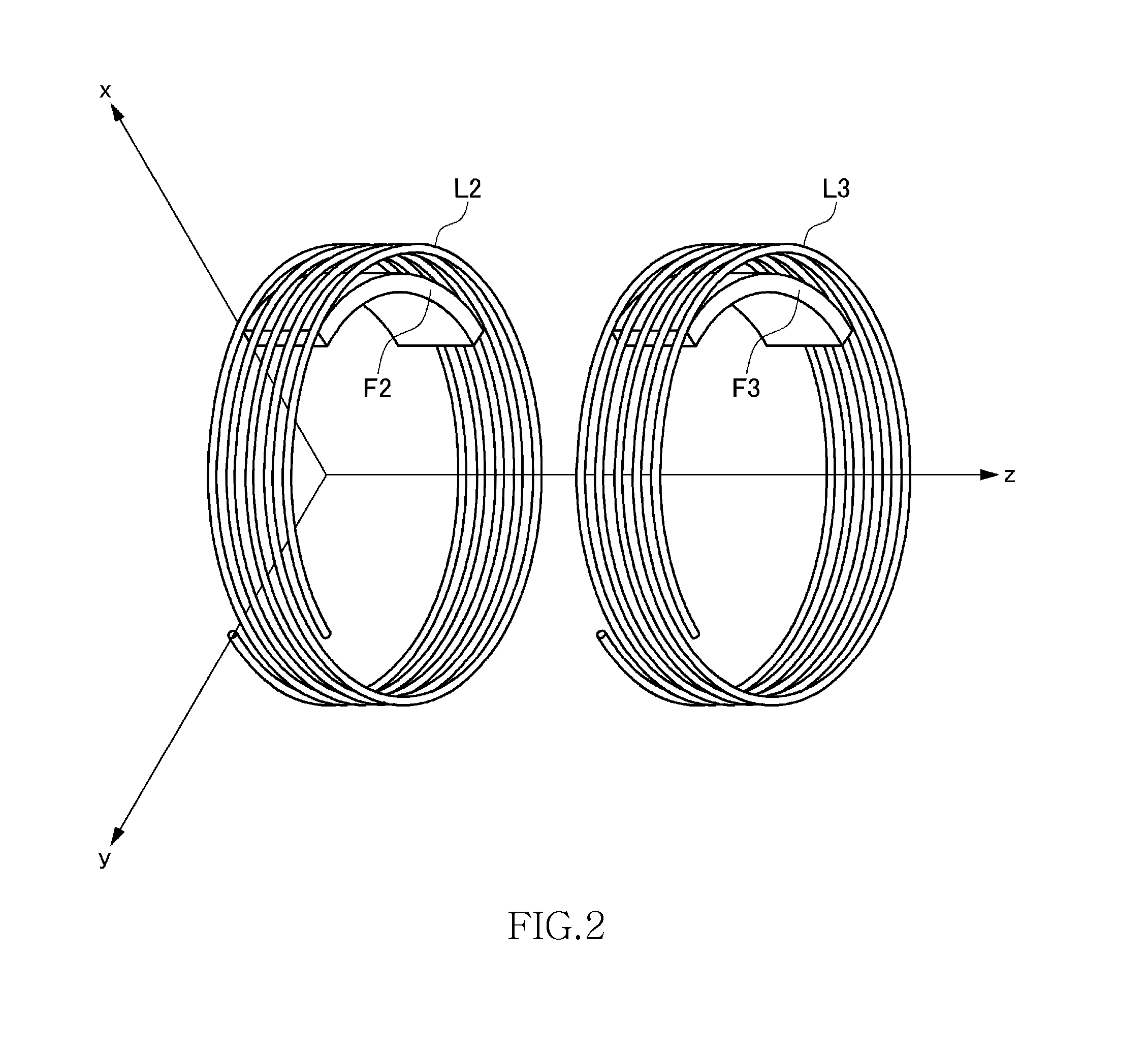Wireless power feeder, wireless power receiver, and wireless power transmission system, and coil
- Summary
- Abstract
- Description
- Claims
- Application Information
AI Technical Summary
Benefits of technology
Problems solved by technology
Method used
Image
Examples
first embodiment
[0089]FIG. 3 is a view schematically illustrating a wireless power transmission system according to a first embodiment. A power transmission control circuit 200 functions as an AC power supply and supplies AC power of a drive frequency fo to the feeding coil L2. The power transmission control circuit 200 in the first embodiment functions merely as a power feeding source VG (FIG. 1). The drive frequency fo may be a fixed frequency. For example, the drive frequency fo may be set to the resonance frequency fr1. As a matter of course, the power transmission control circuit 200 may be configured to be able to change the drive frequency fo.
[0090]The wireless power receiver 118 includes a receiving coil circuit 130 and a loading circuit 140. In the receiving coil circuit 130, a power receiving LC resonance circuit 302 (refer to FIG. 1) is formed by a receiving coil L3 and capacitor C3. When the feeding coil L2 generates an AC magnetic field at the resonance frequency fr1, the feeding coil ...
second embodiment
[0111]FIG. 13 is a view schematically illustrating the wireless power transmission system according to a second embodiment. In the second embodiment, not the power receiving control circuit 202 but a power transmission control circuit 200 rotates the non-uniform type feeding coil L2 so as to control feeding power. The power feeding side magnetic body F2 is installed inside the feeding coil L2. The power receiving side magnetic body F3 is not installed inside the receiving coil L3. Thus, the magnetic characteristics of the feeding coil L2 in the circumferential direction thereof are non-uniform; while the magnetic characteristics of the receiving coil L3 in the circumferential direction thereof are uniform.
[0112]The power transmission control circuit 200 functions as an AC power supply and supplies AC power of a drive frequency fo to the feeding coil L2. The power transmission control circuit 200 in the second embodiment functions not only as a power feeding source VG (FIG. 1), but a...
third embodiment
[0125]FIG. 22 is a view schematically illustrating the wireless power transmission system 100 according to the third embodiment. A power repeater 210 is added to the wireless power transmission system 100 of the third embodiment. The power receiving side magnetic body F3 is installed inside the receiving coil L3. Other configurations are the same as those of the second embodiment.
[0126]The power repeater 210 is an LC resonance circuit having the same resonance characteristics as the receiving coil L3 and includes a repeating coil L5 and a capacitor C5. A repeating side magnetic body F5 is installed in the repeating coil L5 in the same manner as the power feeding side magnetic body F2 and the power receiving side magnetic body F3. AC power fed from the wireless power feeder 116 is once received by the repeating coil L5. That is, the power repeater 210 has a function of transferring the AC power fed from the feeding coil L2 of the wireless power feeder 116 to the receiving coil L3 of ...
PUM
 Login to View More
Login to View More Abstract
Description
Claims
Application Information
 Login to View More
Login to View More - R&D
- Intellectual Property
- Life Sciences
- Materials
- Tech Scout
- Unparalleled Data Quality
- Higher Quality Content
- 60% Fewer Hallucinations
Browse by: Latest US Patents, China's latest patents, Technical Efficacy Thesaurus, Application Domain, Technology Topic, Popular Technical Reports.
© 2025 PatSnap. All rights reserved.Legal|Privacy policy|Modern Slavery Act Transparency Statement|Sitemap|About US| Contact US: help@patsnap.com



